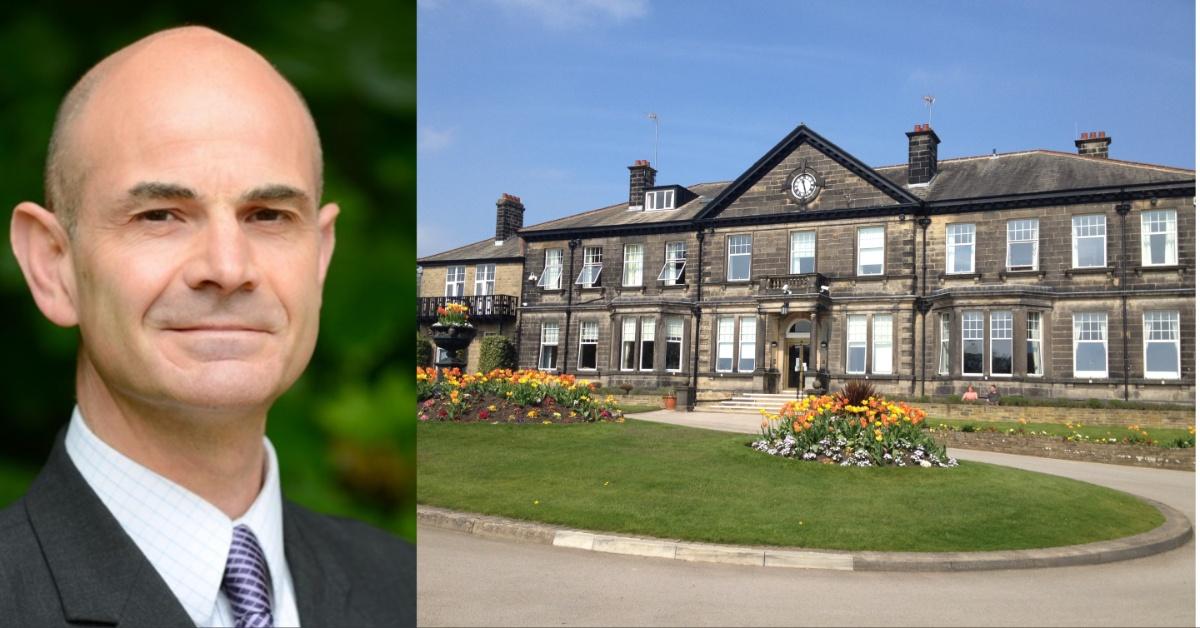Subscribe to trusted local news
If you are accessing this story via Facebook but you are a subscriber then you will be unable to access the story. Facebook wants you to stay and read in the app and your login details are not shared with Facebook. If you experience problems with accessing the news but have subscribed, please contact subscriptions@thestrayferret.co.uk. In a time of both misinformation and too much information, quality journalism is more crucial than ever. By subscribing, you can help us get the story right.
- Subscription costs less than £1 a week with an annual plan.
Already a subscriber? Log in here.
12
Aug 2024
Riots spark ‘significant spike’ in demand at Harrogate's police treatment centre

The Harrogate branch of a charity which supports injured police officers has seen a significant rise in demand for services following the nationwide riots.
The Police Treatment Centres – which also has a branch in Castlebrae – offers intensive physical and mental support to UK police officers.
Chief executive Patrick Cairns today told the Stray Ferret the centre on Harlow Moor Road helps between 3,500 to 4,000 officers every year and was “always busy”.
But Mr Cairns said the recent riots, in which officers were attacked, had led to a significant increase in applications for help.
Riots have affected many towns and cities following the murder of three girls in Southport two weeks ago. Last week, more than 50 officers were wounded in one incident alone outside a Holiday Inn Express near Rotherham.
Mr Cairns said:
There has been a significant spike in applications for those seeking help for both physical and mental health issues – including stress, anxiety and depression – so we’re filtering through those at the moment.
Since we set up the psychological wellbeing programme in 2016, the number of applications has gone up by 10-20% every year. This is for a variety of reasons, but we’ve definitely seen an increase in applications because of the riots.
Officer ‘felt his life was at risk’ at riot
Male and female officers from across the UK are currently having or seeking treatment at the Harrogate centre, including people from South Yorkshire, Merseyside, Northern Ireland and Scotland.
Mr Cairns said the centre was dealing not only with broken bones and torn ligaments, but also the long-term psychological effects of disorder.
He said:
I know one South Yorkshire Police officer, who was at one of the riots, genuinely felt his life was at risk by what was in front of him.
I don't think people realise quite how scary and traumatic it is for police officers to be stood there at these riots – and just how big an impact it has on their mental health.
Mr Cairns told the Stray Ferret he expects there will be a slight dip in applications following the initial spike. However, he anticipates applications from officers seeking psychological support will pick up again in the coming weeks.
He said:
On average, people will go through six to eight traumatic experiences in their lifetime. Police officers experience between 500 and 600.
We have to remember that these riots are overlaid trauma on top of what officers already have to endure. For example, their everyday can include cutting someone out of a car crash with three other dead bodies in the car, or helping a child that is being abused in their home.
Anything like a loud noise or crowd disturbance at a football match can just bring all those memories of the riots back to these officers. No one can absorb that level of stress without it impacting their mental health.

Harrogate Police Treatment Centre

Harrogate Police Treatment Centre
Treatment
The Harrogate site, which can accomodate up to 92 officers over a two-week period, offers a physiotherapy-led programme and a psychological wellbeing programme.
Both are two-week residential courses at the centres and include intensive support from physios and nursing teams. It also offers online physiotherapy services.
Officers receive bespoke and group support, with sessions in fitness and rehabilitation, as well as counselling, therapies, meditation and yoga.
But the charity is predominantly funded by voluntary donations from officers in England, Wales, Scotland and Northern Ireland – with £1.80 deducted from their salary each week.
Mr Cairns said police are “paying for their own treatment”, adding the previous government provided the charity with “zero support”.
He told the Stray Ferret he would like to see the new government’s support for the police force “translate into some money” so the treatment centres can continue operating at a high standard:
I do feel heartened by the noises the new government is making in terms of policing. Officers are paying a price for their mental and physical health.
I don’t need someone to pat me back on the back and tell me I’m doing a good job, I need the government to support us financially so we can offer a gold level treatment to our officers – not bronze.
It’s in everyone’s interest to get these police officers back to good health and ensure they are supported, so they can get back on the front line.
0